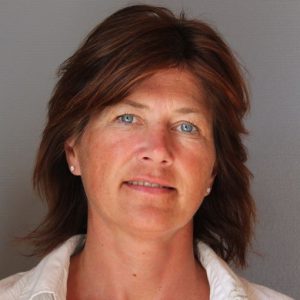
In this edition of "Meet the members", we interview Astri Arnesen, ERN-RND ePAG representative and president of the European Huntington Association. She will tell us more about her work within ERN-RND and her expectations for the network.
1. What is your profession (department, affiliation, etc.) and your medical expertise or specific field of interest?
I come from a family affected by Huntington’s Disease (HD) and grew up while my mother was progressively incapacitated by all the symptoms. It was extra hard because we didn’t know what she suffered from. When I was 19 years old, she was diagnosed and I learned about my own risk of having inherited the same disease. For me it was of crucial importance to get in touch with the patient community and I found great strength and comfort in meeting people sharing the same experience as myself. Since then, I have been engaged in the patient organisations, first in Norway and since 2010 in the European Huntington Association.
2. What do you like most about your work and what is the biggest challenge specially in regards to working on rare diseases?
I feel privileged to be able to work full time as President of the European Huntington Association. I have been so lucky, as I learned in 2010 that I was free of the HD mutation. My dear brother and sister were not as lucky. In my current job I feel I can make use of all my previous professional expertise as well as my life experience with HD. As there are large unmet needs for HD patients and families, I feel that even small improvements can make a big difference for people. It is so rewarding to hear stories about how people feel empowered by being part of the community. This goes both for family members and professional carers and clinicians. When affected by, or working with, a rare disease, you often feel isolated and alone. That is why organizing networks and meeting places is so important. Rare Diseases are usually complex and because of the rarity nobody can know everything. We need to learn from each other and exchange experiences and not the least – develop new knowledge together.
3. How do you participate in ERN-RND? Can you tell us about your experience presenting a case via the CPMS?
I was invited to be involved as a patient representative (ePAG) in 2017. In ERN-RND there are 8 patient representatives. We meet regularly and have a very good connection to the network coordinators in Tübingen. I am active in sharing information about the ERN-RND in my disease community to raise awareness and understanding of the existence and importance of the network. I encourage the national patient associations and the clinicians to engage as much as possible with their respective network members. EHA is coordinating the HD associations throughout Europe in advocacy for the ERN-RND in their respective countries.
4. What are your expectations for the network?
Honestly, I have very high expectations and aspirations for the network. The ERNs are the main infrastructure that the EU has established to meet the needs of Rare Disease patients. Only through these networks will it be possible to offer expertise to RD patients all over Europe and reduce inequalities.
5. How do you think patients and clinicians can work together/why do you think it is important?
A strong alliance and collaboration between patients and clinicians is the most powerful way to achieve better services to patients. Patients and clinicians complement each other’s expertise and it is only in collaboration we can develop services tailored to meet the needs of rare disease patients. Within the network I think we still are looking for ways to how we can optimise the collaboration. We all struggle with lack of capacity in terms of time. More time and resources need to be allocated to the network members to enable us as to work more closely together. Collaboration requires time and time costs money! It is easy and difficult at the same time.
6. What would you wish in terms of educational activities or materials to be offered from ERN-RND?
I would love to see the educational resources being offered not only to medical professions, but also include multidisciplinary approaches and serve as a resource for specialization in ERN-RND for physiotherapists, occupational therapists, psychologist, nurses, speech therapists etc.
I also hope for a lot of exchange visits between personnel from the ERN-RND member clinics. Academic education is necessary and good, but we learn deeper and additional skills through seeing others perform and being able to test academic knowledge in practice.
7. Is there anything else you would like to add?
I am grateful for how far the ERNs has come since the start in 2017, but we have a long way to go before we have achieved the goal – that all rare disease patients have access to the expertise needed to provide best possible treatment. I wish that the patient groups and the clinicians could join forces and advocate for more resources to the network collaboration and activities. This needs to be done at many different levels, from the clinic department to hospital management to national health care authorities to the EU level of decisions and budgeting.
Are you an ERN-RND full member or affiliated partner and would like to participate? Please contact us.
